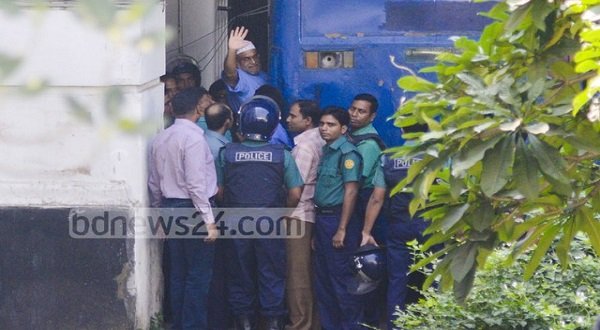
DHAKA (AFP) Bangladesh’s highest court on Tuesday upheld the death sentence of a top Islamist leader and business tycoon for war crimes, clearing the way for his execution within months.
Chief Justice SK Sinha announced in the Supreme Court he had dismissed the appeal of Mir Quasem Ali, who was convicted of murder and abduction during Bangladesh’s 1971 war of independence against Pakistan.
Ali, a shipping and real estate tycoon, headed a media corporation aligned with Bangladesh’s largest Islamist party, Jamaat-e-Islami before his arrest in 2012.
He was convicted of running a militia torture cell that carried out killings including that of a young independence fighter.
“The court upheld his death sentence for the abduction and murder of a young freedom fighter whose body was dumped in a river,” Attorney General Mahbubey Alam told AFP.
The 63-year-old faces the gallows within months unless his case is reviewed by the same court or he is granted clemency by the Bangladeshi president. Three senior Jamaat officials and a leader of the main opposition party have been executed since December 2013 for war crimes, despite global criticism of their trials by a controversial war crimes tribunal.
The executions and previous convictions against other Jamaat officials plunged the country into one of its worst crises in 2013. Tens of thousands of Islamist activists clashed with police in nationwide protests that left some 500 people dead.
Ali, a former leader of Jamaat’s powerful student wing, helped set up a number of charities, businesses and trusts linked to the party after it was allowed to operate in the late 1970s. The tycoon, who was arrested in 2012 on 14 war crimes charges, headed the Diganta Media Corporation that owns a pro-Jamaat daily and a television station.
The government shut down the television station in 2013 for inflaming religious tensions.
Defense lawyers have said the charges against Ali were “baseless and false” and they argued that he was not at the crime scenes during the war.
Jamaat and the main opposition Bangladesh Nationalist Party have accused the government of using the war crimes court to target their leaders through phoney charges.
Rights groups have also criticized the trials, saying they fall short of international standards and lack any foreign oversight.
Agence France-Presse

